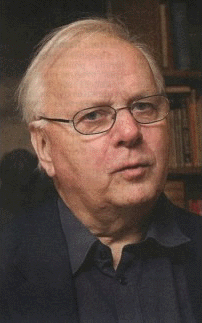A process-oriented conceptual platform for informatics

kristen@ifi.uio.no
Seminar on People, Computers,
and Design
Stanford University October 19, 2001
Object-orientation is now the dominant style in programming,
taught at introductory level in most places. Students complain
that OO is difficult to learn. Kristen Nygaard is of the opinion
that the standard pedagogic in teaching object-oriented programming
is wrong. The reason is that few teachers and text-book authors
understand OO properly. He argues that one must start with "sufficiently
complex examples" instead of "sufficiently simple examples"
in order to teach the pupils the "world view" of object-orientation.
Otherwise they will continue to program as before, albeit in
an object-oriented language.
The lecture is about how object-oriented programming was invented and is related to other languages and ways of thinking about programs and processes. It has plenty of anecdotes, most of them with a bearing on how to understand object-orientation.
Kristen Nygaard is Professor at the University of Oslo and a consultant at the Norwegian Computing Center. He developed, together with Ole-Johan Dahl, SIMULA I (1961-65) and SIMULA 67 - the first object oriented programming languages, introducing the concepts upon which all later object-oriented programming languages are built: Objects, classes, inheritance, virtual quantities and multi-threaded (quasi-parallel) program execution. He did research for Norwegian trade unions on planning, control, and data processing, all evaluated in light of the objectives of organised labour (1971-1973). Other research and development work included: the social impact of computer technology, and the general system description language DELTA (1973-1975). Since 1976 he has been engaged in the development and (since 1986) the implementation of the general object oriented programming language BETA together with Bent Bruun Kristensen, Ole Lehrmann Madsen and Birger Møller-PedersenThe language is available on a wide range of computers. His current interests are directed towards the didactical aspects of the teaching of introductory programming and system comprehension, and towards contributions to the creation of a unifying platform for informatics as a science.
Kristen Nygaard worked at the Norwegian Defense Research Establishment (1948-60), was Director of Research at the Norwegian Computing Center (1960-84), professor in Aarhus, Denmark (1975-1976) and then professor in Oslo (1977-1996). In 1987 he was Visiting Professor at Stanford University, Palo Alto, USA, Visiting Scientist at Xerox PARC in Palo Alto and a consultant and lecturer at Apple's Advanced Technology Group. He is Doctor Honoris Causa at Lund University, Sweden, and Aalborg University, Denmark. Computer Professionals for Social Responsibility has awarded him its Norbert Wiener Prize for "responsibility in social and professional work". He was awarded Computerworld's honorary prize for "having made Norway known internationally in the information technology field", and became - together with Ole-Johan Dahl - the first to receive the Rosing Prize. He is Commander of the Order of Saint Olav. He has also been active in Norwegian politics. He was from the start in 1988 till the victory in the referendum on 28. November 1994 the chairperson of "Nei til EU" (No to European Union Membership for Norway), coordinating the efforts to keep Norway outside the EU, and then the largest political organisation in Norway.
View this talk on line at CS547 on Stanford OnLine
Titles and abstracts for all years are available by year and by speaker.
For more information about HCI at Stanford see